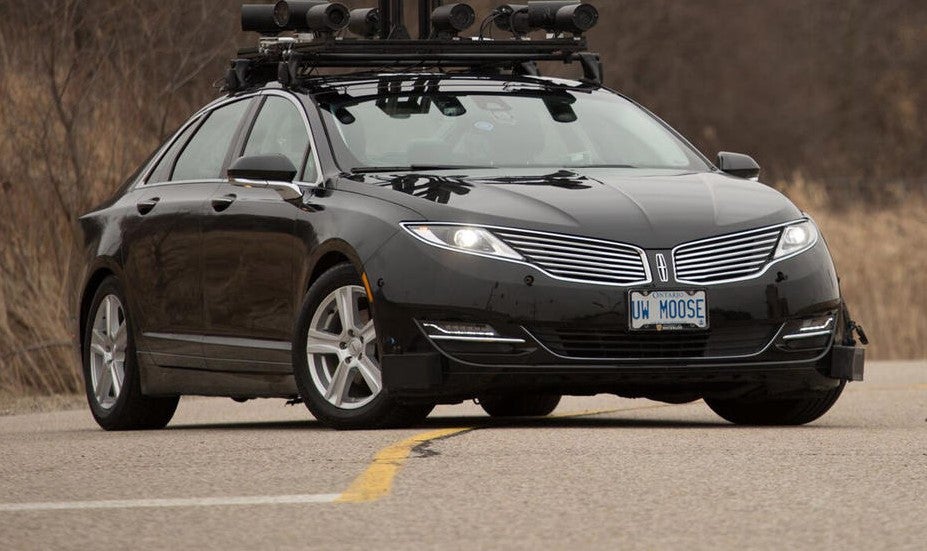
Achieved last week in an industrial area of Waterloo, it is the culmination of almost two years of work since the research team won approval from the Ontario government to do on-road testing in an autonomous vehicle pilot program.
“We’re pulling this off and 100 kilometres is symbolic of that,” said Krzysztof Czarnecki, co-lead of more than 60 professors, engineers, researchers and graduate students working on the project. “It’s a number you can’t reach without having a robust system.”
Nicknamed the Autonomoose, the modified Lincoln MKZ hybrid sedan at the heart of the initiative is equipped with nine cameras, LiDAR and radar scanners, and other sensory devices that gather data for processing by sophisticated on-board computer software.
The car travels in autonomous mode on public roads at a top speed of 35 km/h, negotiating intersections and light traffic for up to two kilometres at a time without intervention by a driver seated behind the wheel at all times.
“This is an important stepping stone,” said Danson Garcia, the lead hardware researcher. “We can definitely see this is doable and that our research is moving forward.”